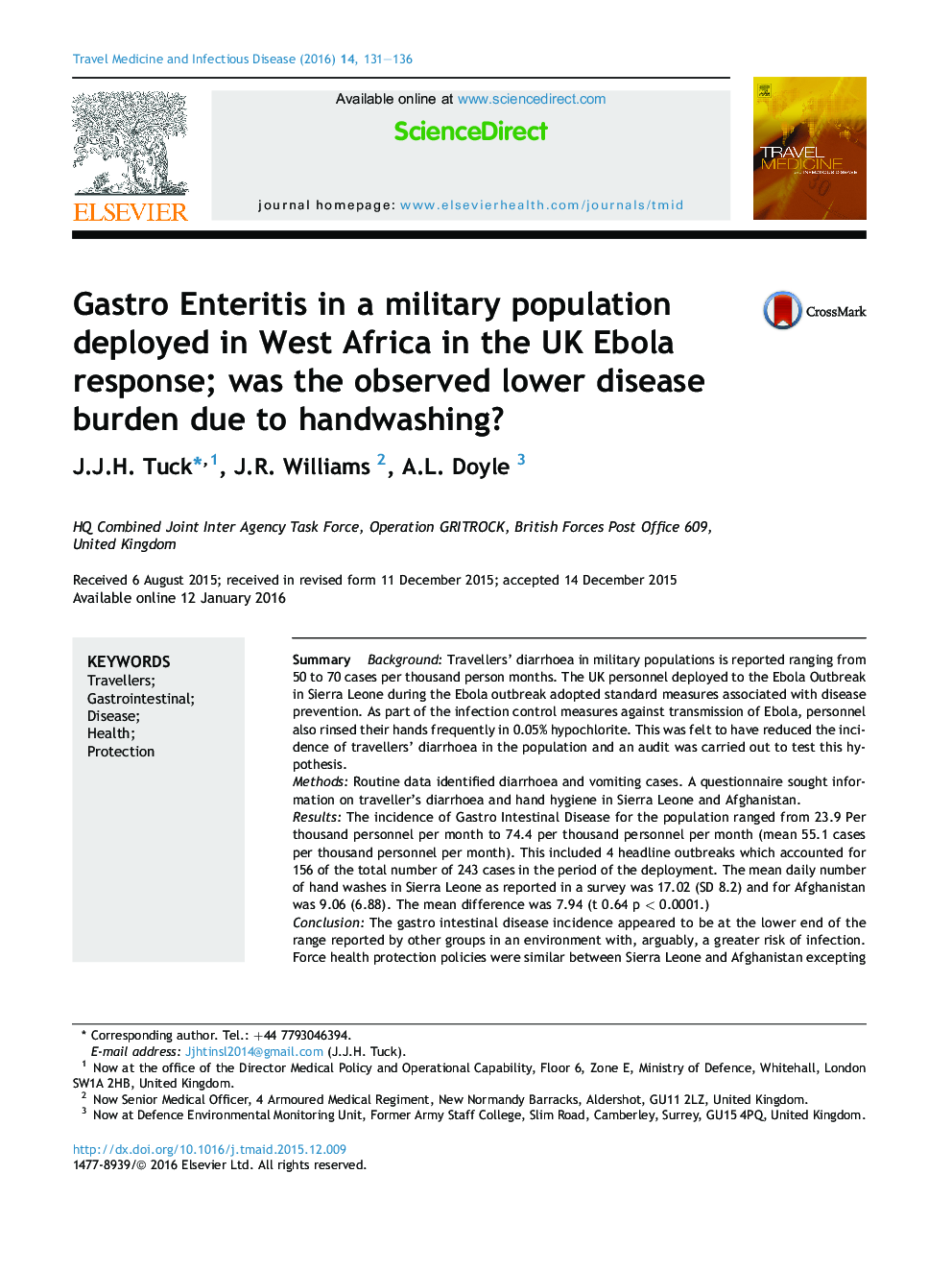| Article ID | Journal | Published Year | Pages | File Type |
|---|---|---|---|---|
| 3392737 | Travel Medicine and Infectious Disease | 2016 | 6 Pages |
SummaryBackgroundTravellers' diarrhoea in military populations is reported ranging from 50 to 70 cases per thousand person months. The UK personnel deployed to the Ebola Outbreak in Sierra Leone during the Ebola outbreak adopted standard measures associated with disease prevention. As part of the infection control measures against transmission of Ebola, personnel also rinsed their hands frequently in 0.05% hypochlorite. This was felt to have reduced the incidence of travellers' diarrhoea in the population and an audit was carried out to test this hypothesis.MethodsRoutine data identified diarrhoea and vomiting cases. A questionnaire sought information on traveller's diarrhoea and hand hygiene in Sierra Leone and Afghanistan.ResultsThe incidence of Gastro Intestinal Disease for the population ranged from 23.9 Per thousand personnel per month to 74.4 per thousand personnel per month (mean 55.1 cases per thousand personnel per month). This included 4 headline outbreaks which accounted for 156 of the total number of 243 cases in the period of the deployment. The mean daily number of hand washes in Sierra Leone as reported in a survey was 17.02 (SD 8.2) and for Afghanistan was 9.06 (6.88). The mean difference was 7.94 (t 0.64 p < 0.0001.)ConclusionThe gastro intestinal disease incidence appeared to be at the lower end of the range reported by other groups in an environment with, arguably, a greater risk of infection. Force health protection policies were similar between Sierra Leone and Afghanistan excepting the frequency with which hands were rinsed or washed. We recommend that hand washing stations are placed at every office and communal area and not just at the dining facility in order to minimise the incidence of travellers' diarrhoea on future operations.
